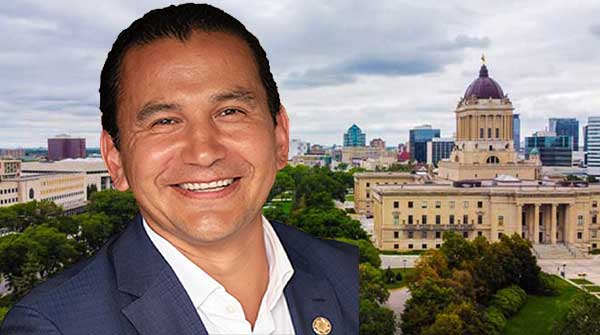Federal largesse may offer temporary relief for Manitoba’s dismal finances, but Kinew government is handicapped by its domination by the unions
 The recent Manitoba election was much tighter than many people thought. The NDP won with just four percent more votes than the PC’s tally. And the turn-out was historically low – only 55 percent of eligible 885,000 Manitobans voted. The NDP won the election with the support of only 25 percent of eligible voters.
The recent Manitoba election was much tighter than many people thought. The NDP won with just four percent more votes than the PC’s tally. And the turn-out was historically low – only 55 percent of eligible 885,000 Manitobans voted. The NDP won the election with the support of only 25 percent of eligible voters.
So, despite the rah-rah tone of media partisans, 75 percent of eligible Manitobans either voted for other parties or did not vote at all. And, considering actual votes, two of the three parties, the PC and the Liberals, registered 254,000 votes to the NDP’s 221,000.
The Kinew government is currently benefiting from strong financial support from federal sources. The federal government has pledged to fund a $475 million upgrade to the Pointe Dubois Dam for Manitoba Hydro, even amid the utility’s ongoing financial challenges. Additionally, Manitoba is set to receive a 24 percent boost in its equalization grant next year, resulting in an additional $900 million in federal funding.
 Web Kinew |
| Related Stories |
| Canada’s Premiers have failed the basic needs test
|
| The fox is in the hen house
|
| Will Manitoba Premier choose the path to Indigenous prosperity?
|
Going forward, such Santa Claus-level federal grants may hopefully move the provincial budget closer to balance. But the Kinew Government should not expect such federal generosity to continue past 2024-2025 – because, very likely, a change in government at the federal level is coming.
And given Manitoba’s woeful history of government finances and deficits, including a recently updated forecast of a large government deficit for 2023-2024, it raises the question: Can the Kinew government’s generous labour agreements be maintained as Canada faces an impending recession?
The newly elected Kinew government has already signalled its intention to implement wage hikes in the public sector. But they can be risky and expensive. The government’s bench is comparatively ‘young’ and inexperienced, and there is a real risk of dangerously naive “magical thinking” from the public sector and identity politics activists that dominate Kinew’s caucus.
Yet, give the Kinew government credit for not abandoning PC government tax reforms – particularly those that benefit low-income tax filers. The PC government was also reducing municipal property taxation, dropping 50 percent of the tax related to school levies (with an intent to increase the reduction to 100 percent). This is a sound policy that aligns with the national standards – it’s inappropriate for property taxes to cover education costs. Hopefully, the newly elected NDP government will fully implement this change, benefiting, again, primarily lower-income taxpayers.
To remain competitive with other provinces, the payroll tax should also be phased out as soon as possible.
Unfortunately, the Kinew government will have little luck improving healthcare. Why? Because its union masters will lobby to continue the status quo approach of just throwing more money at broken systems.
This gets us back to the Kinew government’s Achilles Heel.
Here is the harsh reality – higher taxes will backfire with usually lower than projected revenues. And federal equalization transfers will be slashed. Hard. Like they were in the 1990s by the Chretien government. Plan for it.
This leaves us with the more complicated approach of spending smarter on existing services. Compared to other provinces, Manitoba currently spends too much on core public services. Education and healthcare spending, for example, are among the highest per capita in Canada, while Manitoba’s healthcare outcomes are at the bottom of the barrel. Both healthcare and education need to be properly reformed – no easy task.
And, at that point, the Kinew government might recognize that it’s perhaps fatally handicapped by its traditional domination by the unions.
Graham Lane had a 40 year career as an executive in both the private and public sectors, He is a retired CPA CA and PUB Chair. He is on the Frontier Centre for Public Policy’s Expert Advisory Panel.
For interview requests, click here.
The opinions expressed by our columnists and contributors are theirs alone and do not inherently or expressly reflect the views of our publication.
© Troy Media
Troy Media is an editorial content provider to media outlets and its own hosted community news outlets across Canada.
